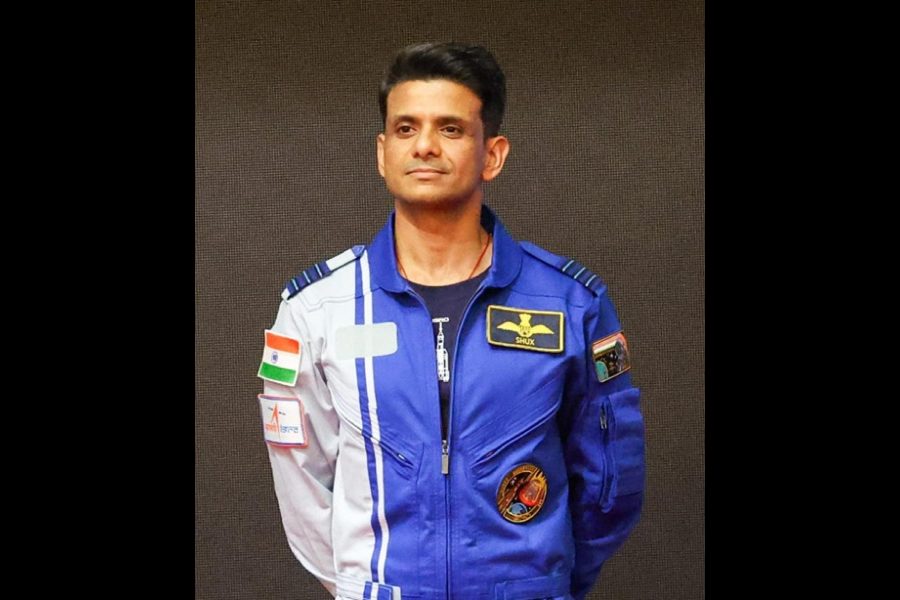Indian Air Force combat pilot Shubhanshu Shukla is set to fly to the International Space Station next week from a US spaceport aboard a SpaceX Dragon spacecraft and become India’s second astronaut since Rakesh Sharma’s 1984 Soyuz mission.
Shukla will be the pilot on the Dragon spacecraft commanded by US astronaut Peggy Whitson with Poland’s Slawosz Uznanski-Wisiniewski and Hungary’s Tibor Kapu as mission specialists on the Axiom Mission 4 (Ax-4) during their 14-day stay on the orbiting laboratory.
A SpaceX Falcon 9 rocket will launch the Ax-4 crew aboard the Dragon from Nasa’s Kennedy Space Centre in Florida on June 10. While aboard the ISS, the Ax-4 astronauts plan to conduct over 60 science experiments, public outreach and technology demonstrations. The launch was earlier set for June 8.
Shukla is a group captain with over 2,000 hours of experience flying multiple combat aircraft.
Shukla is one of four candidate astronauts selected for the Indian Space Research Organisation’s (Isro) Gaganyaan human space flight mission expected to take place in 2027.
“It’s been an amazing journey until now — the best is yet to come,” Shukla said on Tuesday at a countdown-to-launch media conference organised by Axiom Space, a US-based private aerospace company engaged in commercial missions to the ISS and working towards building the first commercial space station.
Shukla and fellow IAF group captain Prasanth Balakrishnan Nair, who’s serving as his designated backup, have been under training for the AX-4 mission since August 2024. All the AX-4 crew have undergone training at Axiom Space, Nasa’s Johnson Space Centre and SpaceX. The training has involved simulations of the launch and docking practice, emergency response drills, space station systems training and scientific payload operations.
“We’re ready to go, we’ve trained for all scenarios, bonded as a team,” said Whitson, who will be commanding her second commercial human spaceflight mission and add to her standing record of 675 days for the longest cumulative time in space by an American astronaut.
Shukla revealed during the media briefing that an air show during his school years and a fascination for fighter jets had drawn him into his career as a combat pilot. “When the opportunity (for an Indian human spaceflight mission) arose in 2018, I instinctively applied,” he said.
Among the seven science experiments Shukla will carry for India, one will examine the impact of microgravity on edible microalgae — a nutrient-rich food source. Another experiment will probe the growth of the organisms called Spirulina, a blue-green algae often described as a “superfood” in space.
Shukla will carry mango nectar, carrot halwa and moong dal halwa to share with his fellow astronauts on the ISS.
The experiments, developed under a tie-up between Isro and India’s department of biotechnology with support from Nasa, are intended to generate data for self-sustaining life support systems for future long-duration space travel.
“From orbit, I hope to speak to students, educators, and members of India’s space industry,” Shukla said, outlining some of the crew’s planned outreach activities from the ISS. Uznanski-Wisiniewsky plans to demonstrate physics experiments to students across Poland.
India’s space agency views the Ax-4 mission as yet another step towards its human spaceflight ambitions.
“The experience and the knowhow from the AX-4 mission is significant to us and will feed into our Gaganyaan programme,” Sudeesh Balan, project director at Isro, had said at a mission overview media briefing earlier this month.










